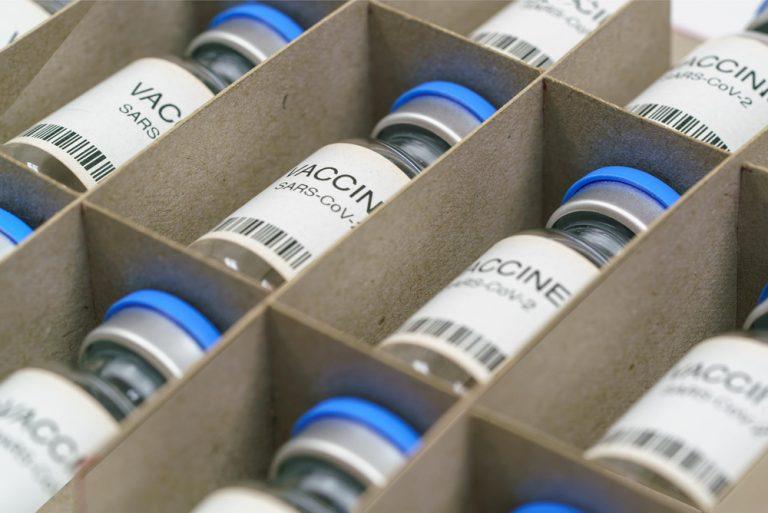
As the mass Covid-19 vaccination drive continues, new data from Finaria.it has revealed that vaccine developers BioNTech-Pfizer (NASDAQ:BNTX, NYSE:PFE) and Moderna (NASDAQ:MRNA) are set to bank $14.7bn in revenue from sales of their coronavirus vaccines by 2023.
The Pfizer-BioNTech candidate made headlines for becoming the first vaccine to be approved for use in the general public when the UK’s Medicines and Healthcare Regulatory Authority (MHRA) authorised the jab in early December. So far, the joint effort by American Pfizer and Germany’s BioNTech has a standing order for 40 million doses from the UK government, and is expected to make $3.1bn in sales during 2021.
However, this figure is expected to drop to under $1.4bn in 2022 and continue trickling over the next few years. The most significant downside of the BioNTech-Pfizer vaccine is that it needs ultra-cold storage, with temperatures as low as -70°C, which has already posed a serious logistical challenge for the UK and a number of other countries.
In 2023, as mass inoculation hopefully enters its final phase, BionTech-Pfizer COVID-19 vaccine sales are forecast to generate just $914 million – almost 3.5 times less than in 2021 – as governments from poorer countries are likely to seek cheaper and less logistically challenging alternatives.
Moderna has already enjoyed global interest in its vaccine, which boasts a 94.1% efficacy rate based on Phase III clinical trials last year, and has already booked a request of 17 million doses from the UK government. Unlike the BioNTech-Pfizer vaccine, Moderna’s only needs to be stored at standard refrigerator temperatures, between -25°C and -15°C. The American pharmaceutical firm behind it is expected to generate $3.5bn in revenue in 2021 alone – $400 million more than its competitor.
Already approved in the UK, US, EU, Canada and Israel, statistics show that Moderna’s vaccine could generate annual sales revenue of $2.9bn over the next two years.
Leading the pack in terms of total ordered doses, however, is the UK’s much-touted Oxford University-AstraZeneca collaboration. By the beginning of this year, almost 3 billion doses had been preordered by a slew of countries around the world, largely due to the fact that it is so far the cheapest vaccine to produce – at about £3 per dose – and that it does not need to be stored at ultra-low temperatures.
And, although still in phase III of clinical trials and without regulatory approval, American vaccine development firm Novavax’s (NASDAQ:NVAX) offering is the second-highest by the number of orders worldwide at almost 1.3 billion.
Data already shows the BioNTech-Pfizer vaccine hit 816 million ordered doses as of last week, with rivals in Russia’s Gamaleya, Anglo-French Sanofi/GSK, and Moderna following with 727 million, 712 million, and 441 million orders respectively.
